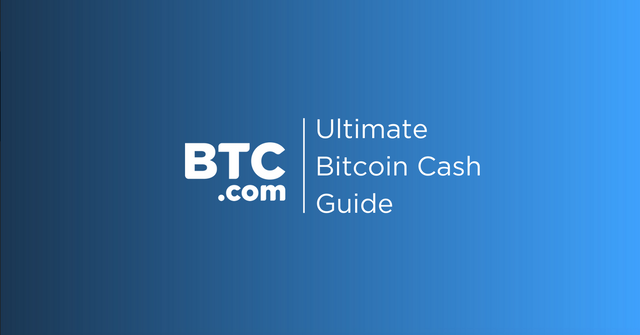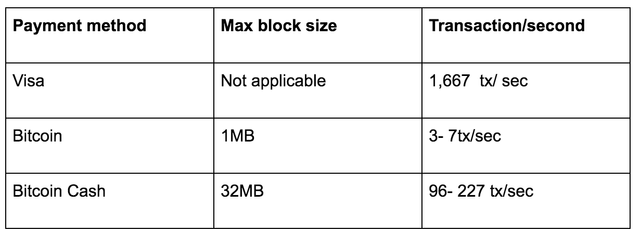Ultimate Bitcoin Cash (BCH) Guide — 1 Year Anniversary Edition
Since its creation on the 1st of August 2017, Bitcoin Cash has made headlines for its passionate supporters and active development.

In this article we will recap the cryptocurrency’s origin, characteristics and major milestones to celebrate its 1 year anniversary.
Short history
In October 2008, Satoshi Nakamoto published the white paper titled “Bitcoin: A Peer to Peer Electronic Cash System”. Ever since, this groundbreaking paper has been a reference piece for the bitcoin community.
The first bitcoin software was released in January 2009 and it operated for several years with low fees and fast, reliable transactions. By 2016, due to massive interest, the bitcoin blockchain started running into scaling issues. This network congestion lead to substantially increased transaction fees. The community, unable to reach consensus, which is referred to as “block size debate”, hard forked a new cryptocurrency called Bitcoin Cash on the 1st of August 2017, at block height 478558.
Because this hard fork split the Bitcoin blockchain, Bitcoin and Bitcoin Cash share an identical history until block 478558. Therefore anyone who held Bitcoin at the time of the fork and owned the private keys to the funds, received the equal quantity in Bitcoin Cash.
Promise
The core promise of Bitcoin Cash is to create a decentralized, peer-to-peer electronic cash system that requires no trusted third parties, with the goal to be used as a means of payment. Bitcoin Cash’s answer to scalability is on-chain scaling by increasing the blocksize when required by the network.
“This the larger block size gives Bitcoin Cash room to scale, something that other blockchains have been looking to tackle in other ways. Bitcoin Cash attempts to solve the scaling problem at the consensus protocol layer, maintaining the Proof of Work model.” — Alejandro de la Torre, VP Business Operations, BTC.com
Benefits
- Reliably low transaction fee at high volume of transactions due to the ability to increase block size when needed.
- Secured by large amounts of hash power via the leading mining pools.
- Smart contract ability paves the way to programmable money without side chains.
Criticism
The main criticism against Bitcoin Cash is that larger block size may lead to only large miners being able to mine it profitably. It is based on a few factors: 1) the cost of storing and processing substantially more transaction data and 2) more bandwidth is required to propagate larger blocks from node to node and to successfully verify the transactions in the blocks within the 10 minutes block interval. However, this may not be a blocking issue in the future as data storage and processing is becoming cheaper and internet penetration is improving globally.
Characteristics
- Ticker: BCH
- Consensus algorithm: Proof-of-Work [PoW]
- Total supply: fixed supply of 21 million coins
- Transactions per second: 96–227 tx/s (estimated)
- Price*: $775
- Total market capitalization*: $13,392,996,716
- Market Cap Rank* : #4
- Hashrate*: 3.99 EH/s
Values as of 31 July, 2018. Sources: coinmarketcap.com, bitinfocharts.com.
Bitcoin Cash’s block size was originally 8MB which was later upgraded to 32MB. With a 32MB block size the Bitcoin Cash blockchain could process between 96 to 227 transactions per second. This variation is explained by the size of the transactions, some transactions might include more data than others. Currently, miners are processing blocks that are often still under 1MB. However with a 32MB block size, BCH is positioning itself as a challenger to financial giants such as VISA and PayPal. Today, VISA network handles on average around 2000 transactions per second and PayPal around 193 transactions per second.

Development activity
Bitcoin Cash has undergone the following major development milestones since 1 August, 2017.
November 13, 2017
This hard fork’s goal was to make Bitcoin Cash’s block times more stable by altering the coin’s Difficulty Adjustment Algorithm. The original Bitcoin Cash ‘EDA’ allowed Bitcoin Cash to survive as a minority chain but it produced wild fluctuations of hash rate. This lead to inconsistent confirmation times for users, and disturbed the coin issuance schedule. This fork was not contentious, and the whole BCH community upgraded to the new chain.January 14, 2018: CashAddr
Bitcoin Cash introduced a new, special address format with the goal to avoid that users mistake BCH and Bitcoin (BTC) addresses. These addresses start with the non-mandatory prefix “bitcoincash:” Read more about CashAddr.May 15, 2018
This hard fork aimed to expand Bitcoin Cash’s ability beyond the simple currency use and to lay the groundwork for future massive scaling. This fork was not contentious, and the whole BCH community upgraded to the new chain. The major changes included:
32MB block size: Bitcoin Cash grows the block size from 8MB to 32 MB. The goal of the block size increase was to allow the network to process more transactions per block, thus create consistently inexpensive transaction fees.
Re-enabling and adding new OP_Codes: Op_codes are machine language instructions that enable the performance of a specific task. The Bitcoin blockchain originally supported OP_Codes but they were disabled for security concerns such as undefined behavior or DDoS attacks.
Increased default data-carrier-size (220 bytes from 80 bytes): OP_Return (a special OP_Code) allows to embed and record more than just financial transactions on the blockchain. The increased data-carrier-size allows for more data to be embed such as smart contracts.
These changes support new innovations such as:
- Colored coins that correspond to real-world assets such as bonds, stocks, commodities, natural resources, or virtual objects.
- Tokenization and ICO’s
- Simple smart contracts
- Multi-signature transactions with many parties
While BCH smart contract are not going to reach the complexity of the Ethereum ones, it’s also not the goal. We are excited to see if in the future BCH could offer an alternative to Ethereum’s smart contracts
Future plans
Some of the future development plans include binary contracts, double spending notifications, and many more.
Main development teams
Bitcoin Cash has active development teams with regular plans for updates.
- Bitcoin ABC
- Bitcoin Unlimited
- Bitcoin XT
Opinion leaders to follow (Twitter)
Jihan Wu: @JihanWu
DeadalNix: @deadalnix
Alejandro de la Torre: @bitentrepreneur
Gavin Andresen: @gavinandresen
Jamie Redman: @jamieCrypto
Nishant Sharma: @nishantsharma87
Paul Wasensteiner: @PWasensteiner
Derek Magill: @derekmagill
Roger Ver: @rogerkver
Memo: @memobch
Bitprim: @bitprim
Javier González González: @JavierGonzalez
Joannes Vermorel: @vermorel
Peter R. Rizun: @PeterRizun
Tiffany Hayden: @haydentiff
Haipo Yang: @yhaiyang
Kenshishido: @kenshishido
Eli Afram: @justicemate
Ryan X. Charles: @ryanxcharles
Bedeho: @bedehomender
BeijingBitcoins: @beijingbitcoins
Practical information
You can purchase Bitcoin Cash from many major exchanges and wallets. One of them is the BTC.com wallet that has full compatibility for all new Bitcoin Cash developments and allows users to own their private keys. If you don’t have any Bitcoin Cash yet, you can buy it in the BTC.com wallet starting as low as $50 with any major credit card. Read more in our Bitcoin Cash Buyer guide.
Final note
Happy Birthday Bitcoin Cash! We can’t wait to see what the next year brings for you. We would like to wish all the best to the various development teams and thank the the BTC.com wallet users and those who make BCH transactions.
- Follow BTC.com on Twitter @btccom_official for all the latest crypto news and product development!